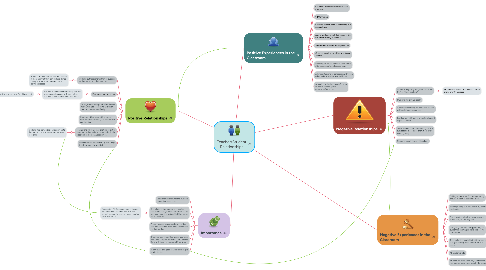Teacher/Student Relationships
by Grace Bisaga


1. Positive Relationships
1.1. Students put forth more effort to succeed for themselves and their teacher.
1.1.1. Students know that their teacher believes in them and that they can do hard things. They get affirmation throughout the learning process.
1.2. Kind words are exchanged
1.2.1. If students and teachers are using kind and encouraging language with each other, that would model for student to student.
1.2.1.1. Positive environment for all is created.
1.3. Stronger relationships with families and more willing to collaborate as a team of teacher, student, and family.
1.4. Students will be more willing to ask questions because they are comfortable and trusting.
1.5. Teacher and students take the time to get to know each other and the conversation in the classroom is more than academics.
1.5.1. Students feel comfortable with coming to the teacher to get advice about personal problems.
1.6. Teachers and students can try new things that they normally wouldn't.
2. Importance
2.1. Relationships are what the students remember years later.
2.2. The relationship a student and teacher have could change a student for the better and help them find a niche that they didn't know they had.
2.2.1. Connection: My 3rd grade teacher inspired me to become a teacher. She was the perfect teacher for me and I knew I wanted to be just like her.
2.3. Sometimes students don't have positive role models in their lives, and a teacher can be that for them.
2.4. Students learn more than academics from teachers. They learn life skills that they will take with them for the rest of their lives.
2.5. It only takes one good teacher to change a student's life.
3. Negative Relationships
3.1. Students might say things like "I can't do this" or "this is too hard".
3.1.1. Students will have a fixed mindset, rather than a growth mindset
